By Halil Karaveli
Ocalan has some incentive to take Bahceli’s—and by extension the Turkish government’s—proposal seriously. Although the PKK is still able to execute the occasional terrorist attack against Turkish targets, it has lost its military campaign in Turkey. The group survives in the Qandil Mountains in northern Iraq, where its headquarters are located. But there, too, Turkey’s drones and a ring of forward bases have hemmed in the PKK, preventing the group from using northern Iraq’s mountainous terrain to stage attacks into Turkey. Ankara’s close partnership with the Kurdistan Regional Government, which leads the semiautonomous Iraqi region, further reduces the PKK’s room for maneuver. With the group’s military prospects looking grim, Ocalan, who is entering his late 70s, has reason to get behind a political solution. Back in 2013, he was quoted as saying, “I want to see peace before I die.”
The political opening in Turkey raised hopes for a settlement with the PKK, but it is the recent fall of the Syrian president Bashar al-Assad that could truly presage the group’s end. Offshoots of the PKK remain active in and in control of northeastern Syria, where their militants have fought alongside the United States in the battle against the so-called Islamic State, or ISIS. But with the collapse of the Assad regime comes an opportunity for Kurdish-majority regions in northern Syria and their militias to be integrated with the rest of the country. Losing this safe haven could be the last straw for an already weakened PKK.
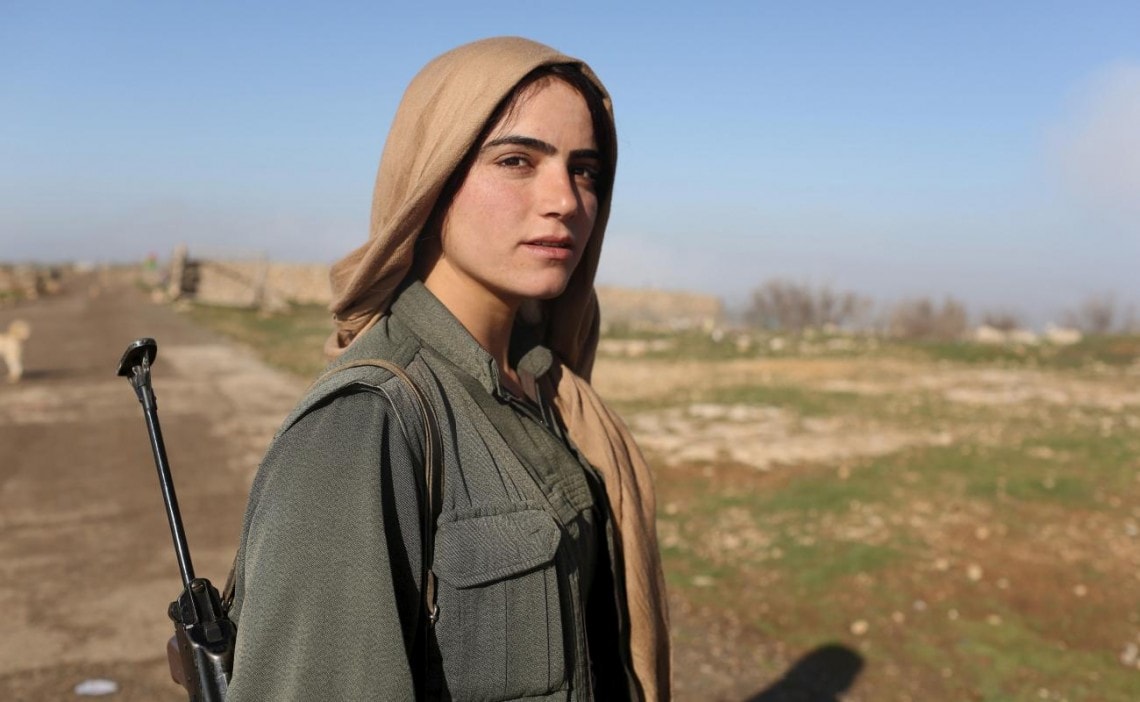
Photo by Asmaa Waguih for "Foreign Policy Magazine: PKK Female Fighters Photo Gallery"
The end of the organization, however, is far from certain. The Turkish government has tried peace negotiations with the PKK before, in 2009 and 2013, to no avail. And despite Ocalan’s status in the group, it is not a given that the Iraqi-based acting leadership would heed his call to disarm and disband. Indeed, the day after Bahceli advanced his proposal for Ocalan’s release, the PKK carried out a terrorist attack at a military-industrial complex outside Ankara, killing five civilians. Moreover, if an agreement with the PKK is not part of a larger arrangement securing the equal status and democratic rights of Turkey’s Kurdish population, simmering discontent could once again spill over into armed insurgency. And if a militarized, semiautonomous, U.S.-backed Kurdish region across the border in Syria continues to harbor fighters and fuel secessionist aspirations, the threat of a PKK resurgence would remain.
These obstacles cannot be discounted. But the confluence of the domestic political developments in Turkey and disruption across the region has raised the possibility that they can be overcome. More than at any time in recent history, there is a real prospect that the PKK could disband—finally removing a threat that has plagued Turkey for the past 40 years.
SAFE HAVEN
Syrian support has long been vital to the PKK’s survival. From the early 1980s, the Syrian dictator Hafez al-Assad allowed Ocalan and his followers a base of operations on Syrian-controlled territory. Assad was an ally of the Soviet Union, and the PKK adhered to Marxism-Leninism until the end of the Cold War. His backing of the PKK endured into the 1990s, in part driven by Syria’s historic resentment of Turkey since the Turkish annexation in 1939 of Alexandretta, a province that at that time belonged to the French mandate of Syria. Only in 1998 did Assad expel Ocalan, yielding to the threat of military intervention by Turkish President Suleyman Demirel. Ocalan was captured in Nairobi, Kenya, in February 1999 and promptly extradited to Turkey. The PKK relocated its headquarters to Qandil in 2003 after the U.S. invasion of Iraq, exploiting the power vacuum created when Saddam Hussein was overthrown.
Syria assumed renewed importance for the PKK after the start of the country’s civil war. In 2012, Bashar al-Assad withdrew government forces from northeastern Syria, allowing a Syrian offshoot of the PKK, the Democratic Union Party (PYD), and its military wing, the People’s Protection Units (YPG), to establish a proto-state—the Autonomous Administration of North and East Syria, also known as Rojava or western Kurdistan—in the region, which has a large Kurdish population. Assad, in effect, handed control of a third of his country, including most of its oil fields, to Kurdish authorities. In return, the Kurdish militias ceased their armed resistance to the regime, thus weakening the larger opposition movement. And Assad was able to deal a blow to Turkey, which was supporting the uprising against his rule.
Turkey has tried peace negotiations with the PKK before, to no avail.
Turkey, fearing that the empowerment of the PKK’s Syrian offshoot would embolden the broader organization, initiated peace negotiations with Ocalan in 2013. But after the PKK attempted to seize control of urban centers in the Kurdish-majority provinces of southeastern Turkey in 2015, talks broke down, and the Turkish army launched a campaign to dislodge militants from the cities. The PKK was defeated in Turkey, but it lives on through close links with the Syrian-based PYD and its military units. The PYD is incorporated into the Kurdistan Communities Union, an umbrella organization founded in 2005 that embraces the political goals of the PKK and is led by Ocalan. PKK members have joined the YPG, which makes up the bulk of the Syrian Democratic Forces (SDF), the coalition that serves as the military force of northeastern Syria’s self-governing region and is a close U.S. partner in the fight against ISIS. The commander in chief of the SDF, Mazloum Abdi, is a former PKK member who worked with Ocalan when the latter resided in Syria.
Turkey has carried out three limited military operations against the PKK’s affiliates in Syria: in the al-Bab region in 2016, in the Afrin region in 2018, and in a corridor running between the cities of Tel Abyad and Ras al-Ayn in 2019. The Turkish military maintains a partial buffer zone in northern Syria, but the U.S. military presence in the region has so far deterred a full-scale Turkish intervention to eliminate PKK-affiliated militias. The official U.S. mission is to provide training, combat support, and military cover to the SDF, but in practice this means that U.S. forces work with the YPG. For Ankara, the difference between the YPG and the PKK is merely one of branding. Washington’s collaboration with the Kurdish militias in Syria has thus complicated U.S.-Turkish relations.
THE PRESSURE BUILDS
With Assad gone, however, the proto-state in northeastern Syria may no longer be viable—and the United States will have to consider options other than relying on PKK affiliates to prevent the return of ISIS. Hayat Tahrir al-Sham (HTS), the Islamist group that overthrew the Syrian regime in December, has rejected a proposal from Kurdish authorities for a federal system that would allow them to retain their autonomy. The group now leading Syria has a history of clashing with the Kurds: in 2012, after Kurdish authorities first took control in northeastern Syria, HTS’s predecessor, the Turkish-backed jihadist group Jabhat al-Nusra, entered Syria from Turkey to attack the Kurdish militias. More recently, Ahmed al-Shara, HTS’s leader and Syria’s transitional president, has stated that the SDF should be integrated into the national army so that military power will be “in the hands of the state alone.” And Syria’s new defense minister, Murhaf Abu Qasra, told reporters in January that HTS has a backup plan should the SDF refuse to negotiate, stating, “If we have to use force, we will be ready.”
In the weeks since Assad’s fall, senior Turkish officials have repeatedly emphasized their wish to see the YPG disbanded. In December, Turkish Foreign Minister Hakan Fidan described the elimination of the group as Ankara’s “strategic objective,” calling on Syria’s new leaders to dismantle the YPG; expel its commanders, including Syrian ones; and restore central control of all Syrian territory. A few days later, Turkish Defense Minister Yasar Guler echoed that sentiment, stating that Turkey’s “priority is the liquidation of the YPG.”
Syrian support has long been vital to the PKK’s survival.
If HTS and Turkey achieve their objectives, whether through negotiations or by force, the PKK will suffer a fatal blow. From Turkey’s perspective, the main threat is not a military one: the flat terrain along the Syrian-Turkish border is easy to monitor, and unlike the mountainous topography in northern Iraq, it is not suitable for guerrilla warfare. But Ankara does fear that an autonomous, armed, Kurdish-led political entity in Syria could become—if it isn’t already—the focus of Kurdish separatist aspirations in Turkey. That risk has proved manageable in the case of northern Iraq: Ankara and the Kurdistan Regional Government have good relations, and the PKK has been marginalized there. But Syria is a different matter. The Syrian Kurds have closer bonds with the Kurds in Turkey than the Iraqi Kurds do; many are descendants of the refugees who fled to Syria after the suppression of the first Kurdish uprising in Turkey in 1925. Rojava, therefore, is a pole of attraction that northern Iraq never was. The PKK envisions a decentralized system of self-governance that would span the Kurdish regions of Turkey, Syria, Iraq, and Iran. As long as autonomous rule in Syria endures, this dream stays alive.
Now, the biggest obstacle to ending that autonomy and integrating the SDF into a Syrian national force is the United States. Last month, Abdi, the SDF commander, told Le Monde that the group wants the northeastern Syrian region to maintain “administrative autonomy . . . while cooperating with the central government.”He has also affirmed the group’s desire for U.S. forces to remain in Syria to supervise a cease-fire between the SDF and the Syrian National Army, a Turkish-supported militia. But HTS and the Turkish government have rebuffed these aspirations. Only with continued support from the United States can the SDF withstand the pressure from both Syria’s new leaders and their backers in Ankara. Washington, for its part, may be inclined to stand by its Kurdish allies, even at the risk of further estrangement from Ankara. During his Senate confirmation hearing, U.S. Secretary of State Marco Rubio spoke of the importance of cooperation with the SDF to keep ISIS in check and warned of the consequences of “abandoning partners” who have made “a great sacrifice.” President Donald Trump, meanwhile, has been vague about the continued presence of the 2,000 U.S. troops in Syria, saying last week that “they don’t need us involved.”
A PATH TO PEACE?
There is still a path, albeit a narrow one, to a political solution that could bring long-term stability. Disbanding and disarming the SDF and ending the autonomous status of northeastern Syria could help stabilize the country as the new Syrian government consolidates control. Turkey, with the principal threat across its border eliminated, could be convinced to drop its more far-reaching demands on the Syrian Kurds, including the expulsion of all YPG commanders from Syria, and encouraged to reach a mutually acceptable agreement with its Kurdish interlocutors in Turkey, including amnesty for PKK militants, the release of imprisoned Kurdish politicians, and the enshrining of equality between Turks and Kurds. (The last aim would require amendments to Turkey’s constitution, which stipulates that only Turkish can be taught as a mother tongue and that every citizen of the Republic of Turkey is a Turk.) The United States can take Turkey up on its offer to assume leadership of the mission to suppress ISIS, and in the process of negotiations over a U.S. withdrawal from Syria, Washington can push both Ankara and Damascus to guarantee rights for the Kurds.
Ankara is not going to concede Kurdish self-rule within Turkey, as some Kurdish activists demand. The dismemberment of the Ottoman Empire looms large in the minds of Turkish leaders, and the lesson they took is that self-rule inevitably leads to secession. And there is reason to be skeptical that an authoritarian Turkish state would make significant democratic concessions: in November, with outreach to Ocalan already underway, three Kurdish mayors were removed from their offices and charged with abetting “terrorism.”
There is a path, albeit a narrow one, to a political solution.
Yet Turkey’s leaders do seem to recognize the urgency of a settlement. For a state that refused for decades to even acknowledge the existence of the Kurds, the recognition that Kurdish citizens are, in the words of Erdogan’s adviser Mehmet Ucum, “co-owners” of a common republic marks a significant step. And the government is cracking down on the anti-Kurdish far right: in January, Umit Ozdag, the leader of the far-right Victory Party and a fierce critic of the opening to the Kurds, was arrested and charged with “inciting the public to hatred and enmity.” Bahceli’s proposed bargain with Ocalan may not herald a conversion to liberalism, but it does reveal the Turkish political elite’s pragmatism in the face of perceived threats.
Well before the Assad regime collapsed, Ankara was growing worried that regional turmoil could stoke domestic instability. Three weeks ahead of his appeal to Ocalan in October, Bahceli explained, “When we call for peace in the world, we must also secure peace in our own country.” In an address to parliament the same month, Erdogan emphasized the need to “fortify the home front” in the face of “Israeli aggression.” Ankara’s concerns about foreign meddling did not come from nowhere. In November, Israeli Foreign Minister Gideon Saar described the Kurdish people as Israel’s “natural ally” and said that Israel should strengthen its ties with them. And in October, the pro-PKK newspaper Yeni Ozgur Politika republished a section of Ocalan’s Manifesto for Democratic Civilization, written more than a decade ago, in which he suggested that the PKK could align with the United States and Israel against Turkey. Now that Ocalan has changed his tune—in December, the PKK leader spoke of a “historic responsibility to renew and fortify Turkish-Kurdish brotherhood”—Turkish leaders will not want to miss the opportunity to mend an internal divide that an external power could exploit.
Removing the threat of the PKK will depend on many factors. Ocalan must convince his organization that armed militancy is a dead end after the regime change in Syria. The broader Kurdish population will need to see an opportunity for a better future in Turkey. The United States will need to withdraw from Syria, enabling the Syrian Kurdish militias and government to integrate into a new national body. None of these outcomes are guaranteed, but with foresight from Ocalan, the Turkish government, the new Syrian leadership, and the new U.S. administration, all of them are now within reach.
Read the article here: https://www.foreignaffairs.com/turkey/end-pkk
HALIL KARAVELI is a Senior Fellow at the Central Asia–Caucasus Institute and Silk Road Studies Program Joint Center and the author of Why Turkey Is Authoritarian: From Ataturk to Erdogan.

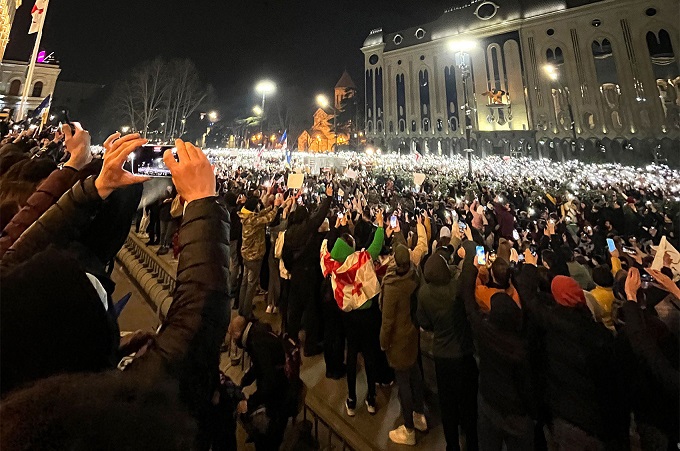
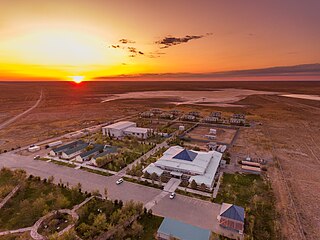
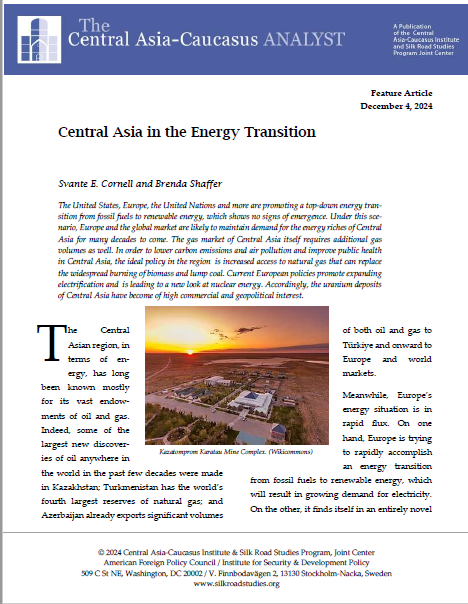

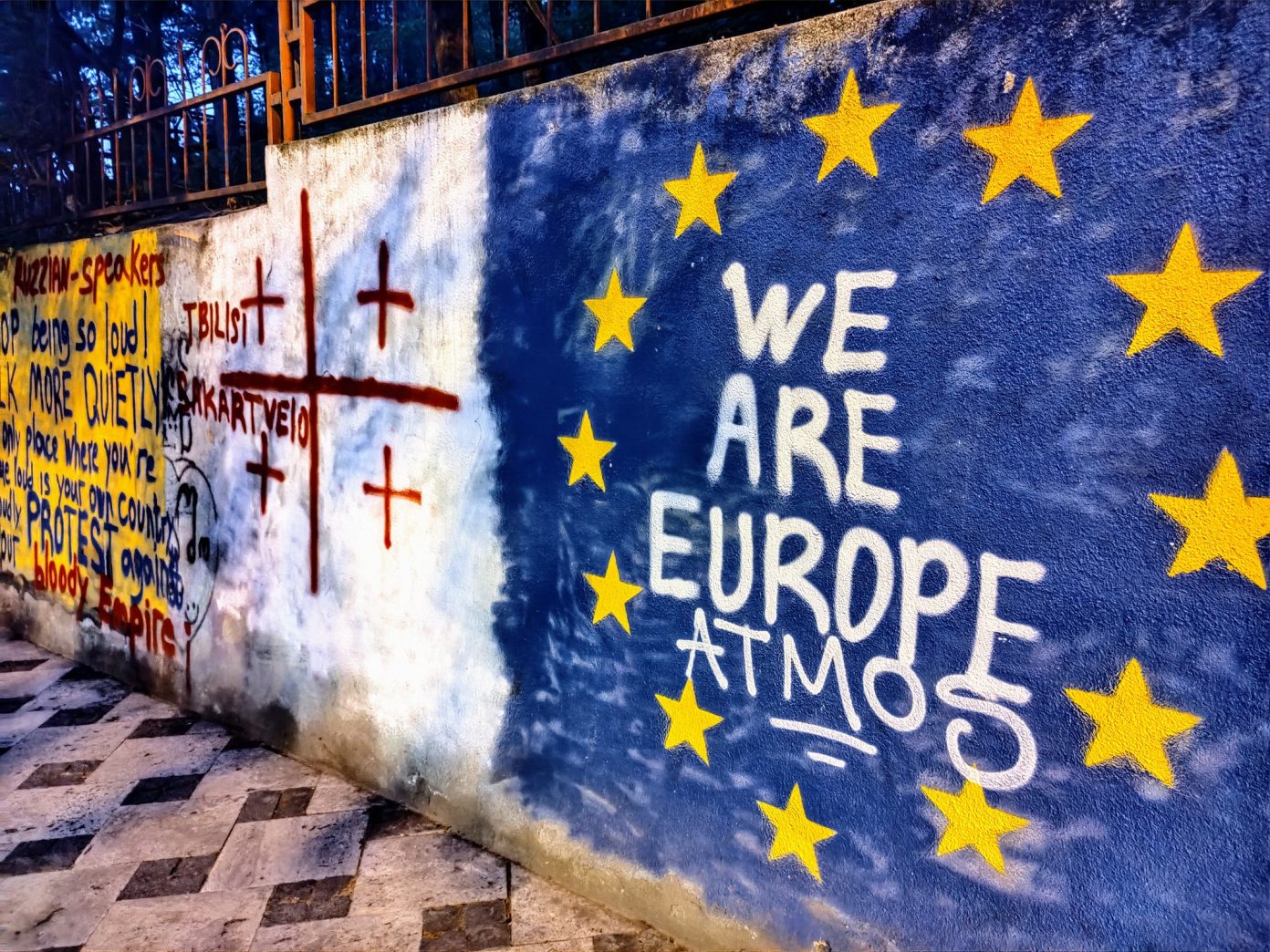
 Major recent shifts, starting with the Taliban victory in Afghanistan and Russia’s war in Ukraine have led to a resurgence of the Trans-Caspian transportation corridor. This corridor, envisioned in the 1990s, has been slow to come to fruition, but has now suddenly found much-needed support. The obstacles to a rapid expansion of the corridor’s capacity are nevertheless considerable, given the underinvestment in its capacity over many years.
Major recent shifts, starting with the Taliban victory in Afghanistan and Russia’s war in Ukraine have led to a resurgence of the Trans-Caspian transportation corridor. This corridor, envisioned in the 1990s, has been slow to come to fruition, but has now suddenly found much-needed support. The obstacles to a rapid expansion of the corridor’s capacity are nevertheless considerable, given the underinvestment in its capacity over many years.

 What should be the United States’ strategy towards Central Asia, the Caucasus, and the region of Greater Central Asia (GCA) as a whole? Should it even have one? Unlike most other world regions, these lands did not figure in US policy until the collapse of the USSR in 1991. Though the new Baltic states entered Washington’s field of vision in that year, in those cases the Department of State could recall and build upon America’s relations with independent Estonia, Latvia, and Lithuania during the inter-war decades. For the US Government after 1991, GCA was defined less as sovereign states than as a group of “former Soviet republics” that continued to be perceived mainly through a Russian lens, if at all.
What should be the United States’ strategy towards Central Asia, the Caucasus, and the region of Greater Central Asia (GCA) as a whole? Should it even have one? Unlike most other world regions, these lands did not figure in US policy until the collapse of the USSR in 1991. Though the new Baltic states entered Washington’s field of vision in that year, in those cases the Department of State could recall and build upon America’s relations with independent Estonia, Latvia, and Lithuania during the inter-war decades. For the US Government after 1991, GCA was defined less as sovereign states than as a group of “former Soviet republics” that continued to be perceived mainly through a Russian lens, if at all.